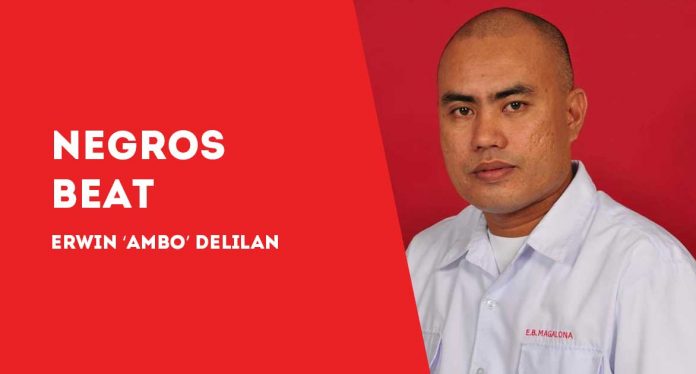
WHAT is wash money? Is it flooding Negros Island right now? While this may seem like a hypothetical question, it could be closer to reality than we think.
Reportedly, illegal money intended for vote-buying in the May 12 elections, often referred to as wash money or narco money, is currently circulating on Negros Island. With less than a month remaining before the highly anticipated elections, concerns are mounting.
But where does this wash money come from?
Authorities in Negros Island are on high alert, bracing for the possible influx of narco money, allegedly to be used for vote-buying during the May 12 elections.
“We are not lowering our guard against any possibility of narco money flooding in for the midterm elections,” said Colonel Rainerio de Chavez, director of the Negros Occidental Police Provincial Office, when interviewed.
De Chavez’s statement follows a series of significant drug busts: an April 7 drug haul in Calatrava, Negros Occidental, and an April 9 raid in Sibulan, Negros Oriental, which together seized over P40.8 million worth of suspected methamphetamine in just two days.
In the Calatrava raid, led by the Philippine Drug Enforcement Agency (PDEA), authorities arrested 23-year-old suspect Kent Bryle Hortilano, a recidivist from Barangay Bantayanon. According to PDEA Region 6 Agent Bamboo, they confiscated P13.6 million worth of shabu from Hortilano in a single operation.
Hortilano is a suspected key supplier of drugs across the entire First District of Negros Occidental, which includes the cities of San Carlos and Escalante, as well as the towns of Calatrava, Toboso, and Don Salvador Benedicto.
The burning question remains: Who is behind the suspect?
‘TOO BIG’
Meanwhile, on April 9 (Araw ng Kagitingan), the Provincial Drug Enforcement Unit (PDEU) of the Negros Oriental Police Provincial Office (NORPPO) seized a staggering P27.2 million worth of shabu from a suspect identified only as “Eljin,” a 50-year-old resident of Purok 6, Barangay Maslog in Sibulan.
Lieutenant Stephen Polinar, NORPPO spokesperson, mentioned that they are still investigating the source of the drugs — whether from Luzon, Visayas, or Mindanao.
Polinar acknowledged that the amount seized is “too big to quantify,” but Eljin reportedly claimed to be merely a caretaker of the supply, awaiting further dispersal.
Eljin also stated that he had no direct contact with the source, receiving instructions solely through phone calls.
“We are currently digging into this case, including investigating the entry point of this large quantity of shabu,” Polinar added.
Again, the question arises: Who is behind Eljin?
UNDER SURVEILLANCE
De Chavez confirmed that there are no reports yet of narco-politicians in Negros Occidental, but the authorities remain cautious, aware that drug money could flood in at the last minute, possibly on the eve of the elections.
Colonel Joeresty Coronica, Bacolod’s city police director, however, made a notable revelation. He disclosed that certain village officials in the “City of Smiles” are under surveillance due to suspicions of their involvement in the drug trade.
While their identities cannot yet be revealed, Coronica confirmed that these officials are being closely monitored, especially during the election season. Once their involvement is confirmed, Coronica stated that he will not hesitate to name names.
Polinar, however, refrained from commenting on the matter of narco-politicians in Negros Oriental.
“What I can say is that we are still conducting an intelligence report regarding this sensitive matter,” he said.
Earlier, both De Chavez and Coronica admitted that around 10 to 12 kilos of shabu enter Western Visayas every month via the Roll-On/Roll-Off (RoRo) port in Caticlan, Aklan. Of this, two kilos are consigned to Negros Island, with Bacolod receiving the largest share.
VOTE BUYING, VOTE SELLING
Under the Commission on Elections’ (Comelec) Omnibus Election Code, specifically Article XXII, Section 261, vote buying and vote selling are strictly prohibited during the election period. The Code states that anyone who offers, promises, or gives money or anything of value during the election period is liable for violating this provision.
Any person found guilty of election offenses under the Omnibus Election Code faces imprisonment for no less than one year and no more than six years, with no eligibility for probation. The convicted individual will also be disqualified from holding public office and deprived of the right to vote.
Negros Occidental Comelec Provincial Supervisor Ian Lee Ananoria advised the public to report any cases of vote buying or vote selling to the nearest Comelec office or via email at redo_nir@comelec.gov.ph. He assured that the confidentiality of the complainants will be upheld.
Ananoria expressed hope that elections in Negros Island will follow the orderly and peaceful example set in the 2022 elections.
EMPIRICAL ANALYSIS
Vote buying is undeniably a corrupt practice, yet many of the impoverished Filipinos seem unable to resist a P500 bill or the temptation of P2,000 waved in front of them. Empirical analysis of vote buying and vote selling reveals a troubling reality: the poor often do not care about the election results.
For them, it matters little who wins. What counts is the money they receive on election day, which helps them buy food for their families. It’s a stark and unsettling truth, but one that remains deeply ingrained. Morality, credibility, and integrity mean little to those struggling to feed their families. What matters most to them is money.
The May 12 elections are perhaps the only chance for these individuals to secure some financial relief. Sad but true, the politics of survival are not easily swayed by promises. After all, money is the immediate solution to a “day without food” reality.
Thus, wash money will likely play a pivotal role in this election season in the Philippines. No one questions where it comes from. What matters is that it is money — and everyone needs it. Do you get it?/PN







